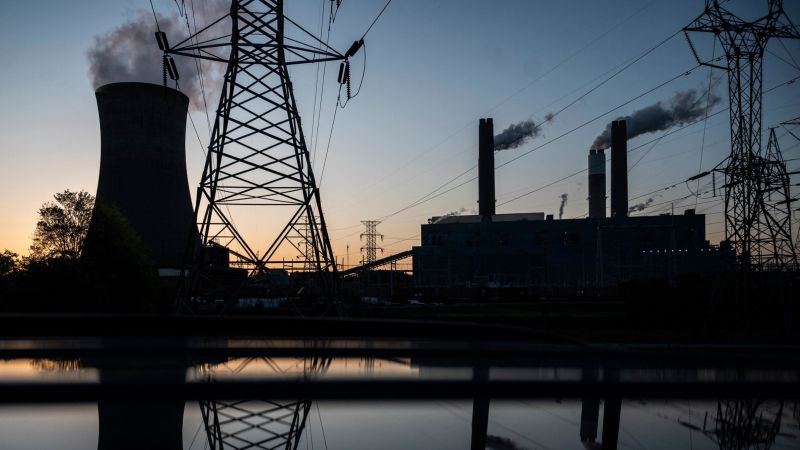
The Biden administration has taken a significant step towards addressing climate change and pollution by finalizing new rules for power plants. According to multiple sources, these rules will require both existing coal and new natural gas power plants to either reduce or capture 90% of their carbon dioxide emissions by 2032. The Environmental Protection Agency (EPA) also announced stricter regulations on mercury emissions and toxic wastewater discharge from coal-fired power plants, as well as safer disposal methods for coal ash.
The new rules are expected to prevent approximately 1.4 billion metric tons of planet-warming pollution from entering the atmosphere by 2047. This represents a reduction of 4 billion metric tons of CO2 emissions compared to the peak in 2005, and a reduction of 6 billion pounds per year in toxic coal ash pollution.
The EPA is closing loopholes for toxic coal ash disposal and tightening restrictions on the number of toxic metals that can be discharged from power plants into wastewater. This will prevent 660 million pounds of pollution per year, reducing exposure to substances like arsenic, chromium, cobalt, nickel and lead that can cause developmental delays in children and contribute to heart attacks and cancer.
These regulations come as part of the Biden administration's efforts to reduce the power sector's planet-warming emissions by 75% compared to their peak in 2005, making it a significant step towards meeting the goals set out in the Inflation Reduction Act. The rules are also expected to have a positive impact on electric power demand and the power sector's planet-warming emissions in the years ahead.
Despite these efforts, there have been criticisms from Republicans and various industries, who argue that these regulations will be costly and difficult to implement. Michael Regan, the EPA administrator, has defended the rules as necessary for protecting public health and addressing climate change.



